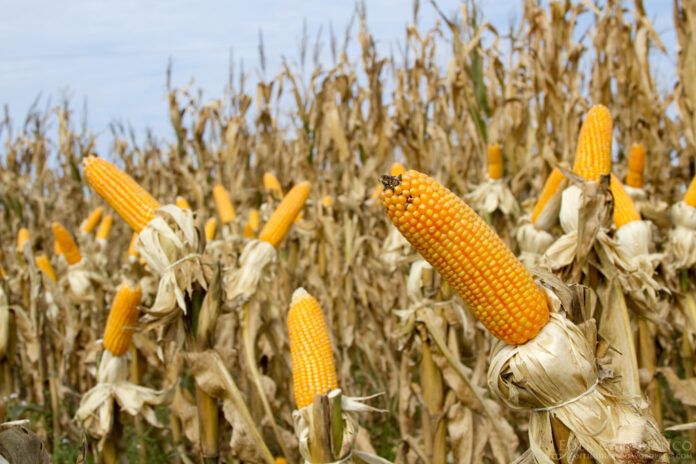LAHORE: The Ministry of Commerce has raised concerns over the decline in Pakistan’s maize exports and has called on the Department of Plant Protection (DPP) and other relevant authorities to take immediate action to resume maize exports.
In a letter addressed to the Ministry of National Food Security and Research (MNFSR), the ministry highlighted the significant drop in exports to key international markets, including Vietnam, Saudi Arabia, France, China, Somalia, and Madagascar, during the current fiscal year compared to the previous year.
The ministry expressed particular concern about the complete cessation of maize exports to Vietnam since September 2024. Vietnam was Pakistan’s largest maize export destination last year, with exports valued at $211 million.
“It has been observed as well as reported by maize exporters, REAP, and Pakistan’s Trade and Investment Officer in Hanoi that the primary reason for the abrupt decline of exports to Vietnam is the self-imposed restriction on maize exports by the Department of Plant Protection (DPP), following the detection of Trogoderma granarium (khapra beetle) in some consignments bound for Vietnam in July 2024,” the ministry explained.
The ministry shared data showing that exports to Vietnam had fallen significantly, from $26.81 million in July 2024 to $7.73 million in August and $0.23 million in September, with no exports since the beginning of the current fiscal year on July 1, 2024. The ministry emphasized that it fully recognizes the importance of complying with international phytosanitary requirements, but it has also been advocating for a balance between regulatory efforts for compliance and export facilitation.
“Exports are, after all, of paramount importance to Pakistan’s economy, promotion of which is the prime objective of the government. However, it has been noted that despite understanding of MOC and MNFSR at higher levels to avoid blanket bans and to instead adopt corrective measures for SPS compliance for exports to Vietnam in July 2024, the process of taking remedial actions by DPP in this regard has been considerably delayed,” the letter states.
The delay in taking corrective actions by the DPP resulted in the suspension of essential export procedures for maize to Vietnam, effectively halting millions of dollars in exports to one of Pakistan’s largest markets.
When the Ministry of Commerce raised the issue with the DPP on March 19, 2025, the DPP responded by issuing a set of Standard Operating Procedures (SOPs) on March 26 for maize exports. However, the ministry noted that by then, significant damage had already been done to the continuity of exports.
The DPP did not provide any explanation for the cessation of export permits for maize to Vietnam, nor did it clarify the reason for the self-imposed export ban.
Additionally, certain provisions in the newly issued SOPs raised concerns. “Notably, Clauses 9 and 14 of the SOPs appear to suggest mandatory double fumigation with methyl bromide (MB), which contradicts the decision taken during the 62nd meeting of the Agricultural Pesticides Technical Advisory Committee (APTAC), which states that: ‘Duplicate MB treatment must be avoided for consignments already fumigated and found free from quarantine pests,'” the letter stated.
The ministry also raised concerns about the requirement for dedicated maize storage warehouses, as outlined in the SOPs. “This requirement will cause significant operational and financial challenges for the exporters, especially SMEs, thereby impeding export facilitation rather than supporting it,” it added.
The issue has been widely highlighted in the media, with reports indicating that Pakistan, despite having an exportable surplus of maize, has seen an 87% plunge in exports over the past few months.
“The ministry requests the DPP to receive the considered views and feedback of MNFSR on the matter with further request for possible revisions of the SOPs in consultations with exporters and other stakeholders and to take immediate export facilitative interventions to help instant resumption of maize exports to Vietnam and other important markets in line with international phytosanitary standards,” the letter concluded.




